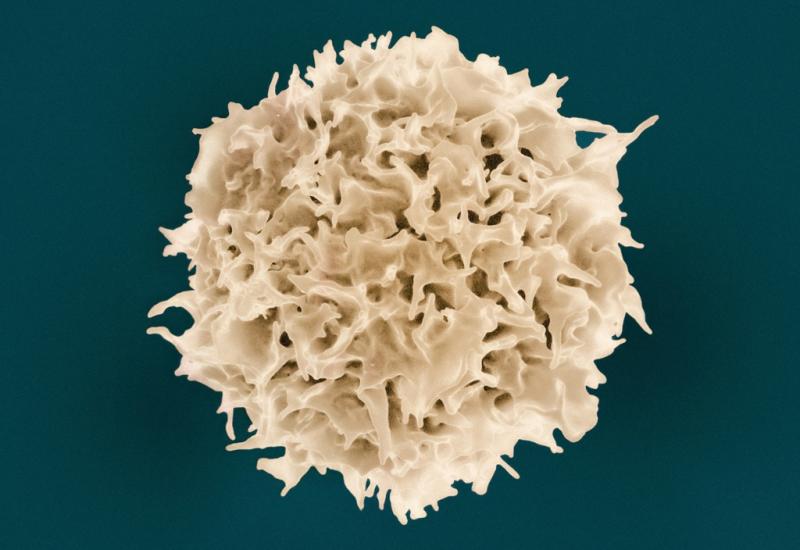
Cardiff's questionable plan yields more questions
More data from onvansertib's phase 2 study fail to convince.
More data from onvansertib's phase 2 study fail to convince.

Backed by somewhat flimsy single-cohort data Cardiff Oncology moved its PLK-1 inhibitor onvansertib into a controlled study, and now the latter has yielded a result that has struggled to convince. The controlled phase 2 trial, CRDF-004, was hailed by Cardiff as backing onvansertib's promise in first-line RAS-mutant colorectal cancer, but on Wednesday the company's stock fell 25%.
Among various aspects of the CDRF-004 update perhaps the most disappointing is a waning of response rates versus a November data cut; while that concerned just a handful of patients it's reminiscent of the way phase 1 onvansertib data deteriorated. At least Cardiff has yet to launch a phase 3 trial that the FDA has apparently deemed a condition of approval.
Still, that's likely to be a factor of the company's straitened financial position; Cardiff on Tuesday reported a mid-2025 cash balance of just $71m. While it says this is enough to sustain it into the start of 2027 the planned 320-patient phase 3 study, CRDF-005, will likely require shareholders to put up more money.
Enough comfort?
As such the question now is whether CRDF-004 has shown enough to give investors the required level of comfort.
CRDF-004 tests two onvansertib doses, combined with Avastin and Folfox/Folfiri chemo, and compares these against Avastin plus chemo alone in first-line, RAS-mutated colorectal cancer. The Roche drug, in combination with other chemo regimens, is a first or second-line standard. Meanwhile, the first-line Tribe study showed Avastin plus Folfox/Folfiri to yield ORRs of 55-65% in RAS-mutant disease.
However, this appears not to be a benchmark for CRDF-004, which enrolled a relatively sicker patient population. Instead, Cardiff set its goal on showing an 11-point difference between active treatment and Avastin/chemo control, and on this basis CRDF-004 is a success: a 20mg onvansertib arm showed confirmed ORR of 42%, while 30mg yielded 49%, versus 30% for control, Cardiff said on Tuesday.
The efficacy dataset now comprises 110 patients, versus 30 when Cardiff released its first data iteration last December, and the company reckons 30mg is the onvansertib dose it wants to test in phase 3. However, the 19-point difference versus control that it now claims for 30mg is notably lower than the 34 points (24 points for both doses combined) being cited in December.
True, the last iteration comprised just 30 patients, but it's notable that, in subjects enrolled since then, those on Avastin/chemo control are showing increased response rates. And baseline imbalances are emerging: just 35% of control arm patients have ECOG 0 status, at the least sick end of the scale, versus 66% in the onvansertib cohorts combined.
Evolving data from onvansertib's CRDF-004 trial
20mg + Avastin + chemo | 30mg + Avastin + chemo | Avastin + chemo | |
|---|---|---|---|
| All patients at 26 Nov 2024 data cutoff | |||
| cORR | 10% (1/10) | 45% (5/11) | 11% (1/9) |
| New patients at 8 Jul 2025 data cutoff | |||
| cORR | 54% (14/26) | 50% (13/26) | 36% (10/28) |
| All patients at 8 Jul 2025 data cutoff | |||
| cORR | 42% (15/36) | 49% (18/37) | 30% (11/37) |
| Baseline characteristics | |||
| ECOG status 0 | 71% | 61% | 35% |
| ECOG status 1 | 29% | 39% | 65% |
Source: Cardiff presentations.
Cardiff claimed a p value of 0.018 for a comparison of ORRs between the 30mg dose and control, and on an investor webcast called this "significant". A PFS analysis was also presented, claiming that this showed a favourable trend for 30mg, but in reality the analysis is so early, with uneven censoring, that little faith can be put in it.
Cardiff embarked on the first-line colorectal cancer indication after presenting several cuts of a multi-tumour phase 1 trial, in which ORRs in colorectal cancer waned variously from over 35% to below 25%. At the last iteration the group zeroed in on a 73% number it claimed form a subgroup of Avastin-naive subjects.
If the markets are getting a sense of déjà vu with onvansertib's waning efficacy they can now add baseline imbalances to their concerns.
1833













